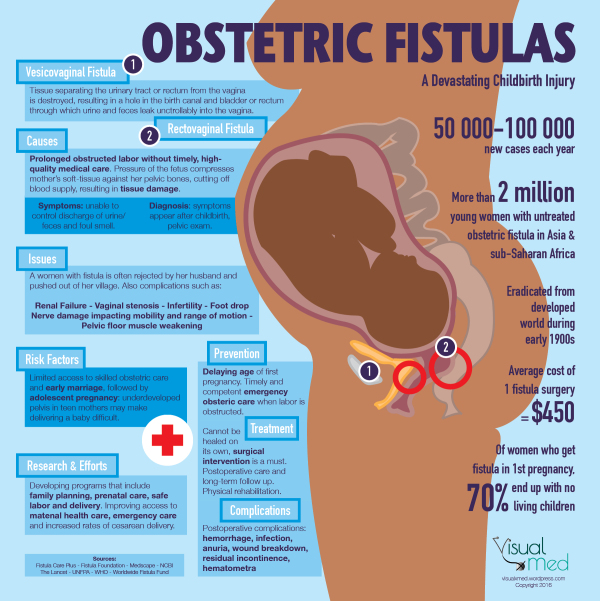The Federal Ministry of Health has directed all teaching hospitals in Nigeria to embark on fistula repairs free of charge as part of efforts to reduce the backlog of the number of women living with the health condition, the Country Project Manager, Fistula Care Plus, Chief Iyeme Efem has said.
Stating this during a two day Media Roundtable Discussion on Fistula Intervention in Lagos yesterday, he said the directive by the federal government to the tertiary hospitals in the country will help in increasing the number of fistula repairs from 5,000 to 12,920 every year.
According to him, “Nigeria currently has a backlog of between 150,000 to 200,000 Nigerian women living with obstetric fistula in the country, with 12,000 new cases added every year. This alarming figure is still worrisome even though our organisation repairs not less than 2000 cases yearly, in addition to the 3000 cases repaired by other organisations in the country; totaling 5000 repairs per year.
“Assuming we have 44 teaching hospitals, and each of them repair 15 women every month, this will amount to 660 repairs, and in one year, it would mean this government’s directive has helped in repairing 7,920 women alone across the country,” he said.
Analysing the arithmetic, Chief Efem said if the 7,920 repairs are added to the 5,000 repairs done by Fistula Care Plus and other organisation, it would mean a total of 12,920 repairs are been done yearly, a result, he said would be a step in the right direction in clearing backlogs and reducing the burden of new cases.
While commending the Minister of Health, Prof. Isaac Adewole for making such a bold step, he said Fistula Care Plus will continue to champion repairs in the country, adding that they were presently involved in fistula interventions in 12 states, including Zamfara, Sokoto, Kebbi, Katsina, Kano, Bauchi, Oyo, Cross River, Osun, Yobe and Kaduna.
On his part, a Consultant Gynaecologist, College of Medicine, University of Ibadan, Prof. Oladosu Ojengbede said prolonged obstructed labour remains a common cause of obstetric fistula, noting that any labour that goes beyond 12 hours was at risk of not just infection, but obstetric fistula if no alternative means of childbirth is suggested and used.
“Obstetric fistula can be prevented if our women go for ante natal, give birth through skilled birth attendants in hospitals, get quality health services and education, among others.”




